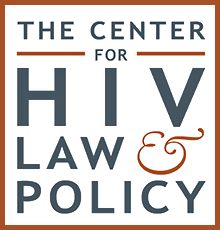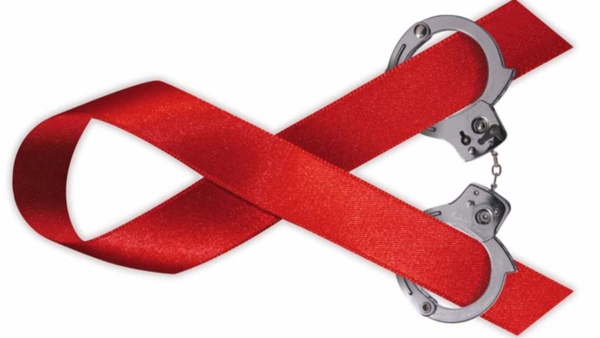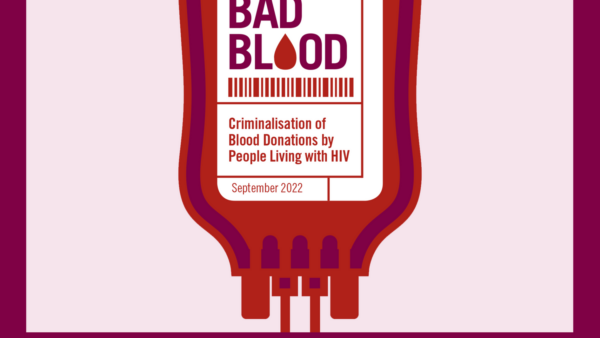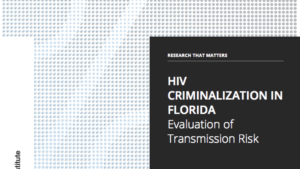Overview
Florida has a number of laws, both HIV-specific and general, that are actively used to prosecute people living with HIV. There have been more than 600 documented HIV-related cases in the state under these laws, making Florida one of the worst hotspots for HIV criminalisation not only in the United States, but globally.
Florida maintains a public health law criminalising non-disclosure of STI status, and separately HIV status, prior to sex. The offence requires the person to be aware of their STI and/or HIV status, to be informed of the risks of transmission through sex, and to go on to have sex with another person. There is a defence if the sexual partner is aware of their STI and/or HIV status and has consented to sex regardless, but there is no consideration of protective measures to avoid transmission, such as use of condoms or low viral load. Neither intent nor actual transmission are required for this offence. Although Florida law originally restricted the meaning of ‘sexual intercourse’ to penile-vaginal sex, appeal courts have been split regarding whether the law can also prosecute acts of anal sex. However, oral sex is not criminalised by this provision.
It is also an offence for people living with HIV to engage in or ‘procure’ sex work in Florida. The law, as with non-disclosure, criminalises both HIV and STIs generally, but separates them out under the provision. It again requires that the person be aware of their status, be informed of the possibility of transmission through sexual activity, and then commit or offer to commit ‘prostitution’, or procure another for ‘prostitution’ by engaging in sex ‘likely to transmit’ STIs and/or HIV. Although framed in this way, the provision is used to criminalise acts which carry little to no risk of transmission, including oral sex. As with the non-disclosure offence, neither intent or actual transmission are required, while neither condom use, low viral load, nor disclosure are defences.
Furthermore, Florida criminalises the donation of blood, organs or other tissues by people living with HIV who are aware of their status and who have been informed that the donation of bodily substances may result in transmission. Again, this offence does not require an intention to transmit or for transmission to occur (see our report, Bad Blood, for a global analysis of the criminalisation of blood donations).
Each of the HIV-related non-disclosure, sex work, and donation offences are third-degree felonies, carrying a penalty of imprisonment for up to five years’ and a fine. The non-disclosure offence can be increased to a first-degree felony for multiple failures to disclose, raising the penalty to thirty years’ imprisonment with a fine.
In addition to these HIV-specific laws, the general criminal law has also been used to prosecute perceived HIV ‘exposure’ in at least one case. This 2009 case involved a man living with HIV being charged with attempted murder for allegedly biting a police officer after shouting that he had HIV and threatening to kill him. He was eventually convicted of aggravated battery for use of a ‘deadly weapon’ – in this case his HIV-positive saliva – and sentenced to 15 years’ imprisonment, despite there being an infinitesimally low risk of transmission from biting.
People convicted of certain offences, such as sexual or physical assaults, where a transfer of bodily fluids was involved are required to undergo HIV testing. Anyone who tests positive and then commits another similar offence can be charged with an additional felony, ‘criminal transmission of HIV’, which carries a sentence of up to five years’ imprisonment and a fine (on top of the base charge penalty). Intent and, despite the erroneous title, transmission are again not required, however it is a defence if the other person was aware of their status and consented to the act. The Center for HIV Law and Policy previously reported that this offence had only been applied in the prosecution of sex workers, but two cases in 2022 involved people living with HIV being charged with ‘criminal transmission of HIV’ for spitting and biting. In the first in September 2022, a woman living with HIV was charged with five counts of criminal transmission of HIV for allegedly spitting on paramedics. In a similar case in October 2022, a man living with HIV was charged with two counts of criminal transmission of HIV for allegedly spitting at and biting paramedics and police officers. Similarly, sentence enhancements have in the past been imposed on people living with HIV for offences such as battery where deemed relevant to the crime (for instance, if it involved biting), though it appears that this has not happened since the 1980s and 90s.
Finally, the Florida health authorities are empowered to impose quarantine and isolation on people living with STIs, including HIV, if deemed necessary.
A 2018 analysis of HIV prosecutions in Florida highlighted the scale of criminalisation in the state; between 1986 and 2017, 614 people were arrested for 874 HIV-related incidents. As with most states, disparities in the enforcement of these laws against different communities were clear. 43% of those arrested were Black, a significant overrepresentation of the community (though the analysis suggests Latino/a people may have negligently been included in this data by law enforcement). Over half of those arrested (56%) were women, while only 27% of those living with HIV in the state were women, which is partly attributable to the high enforcement of sex work offences (60% of total arrests). 35% of arrests resulted in convictions for HIV offences, with Black women being significantly more likely to be convicted (in 60% of cases) for sex work offences, and Black men more likely to be arrested for non-disclosure offences (30%) than other groups. The report did not note a significant difference in the conviction rate for HIV offences and offences related to other STIs.
Despite such significant levels of HIV criminalisation in the state there has so far been little change to the law, despite unsuccessful attempts to bring about legislative reform supported by local coalitions such as Florida HIV Justice Coalition. In 2017, a bill was introduced to the Senate which would have ‘modernised’ Florida law to limit HIV criminalisation to only intentional transmission. However, the bill failed to be adopted. Another bill in 2020 attempted to reduce the charge for non-disclosure to a misdemeanour, but again ‘died’ later that year.
For a detailed analysis of HIV criminalisation in Florida, as well as all other US states, see the Center for HIV Law and Policy report, HIV Criminalisation in the United States: a Sourcebook on State and Federal HIV Criminal Law and Practice.
Laws
Florida Public Health Statute § 384.24
Unlawful acts
(1) It is unlawful for any person who has chancroid, gonorrhea, granuloma inguinale, lymphogranuloma venereum, genital herpes simplex, chlamydia, nongonococcal urethritis (NGU), pelvic inflammatory disease (PID)/acute salpingitis, or syphilis, when such person knows he or she is infected with one or more of these diseases and when such person has been informed that he or she may communicate this disease to another person through sexual intercourse, to have sexual intercourse with any other person, unless such other person has been informed of the presence of the sexually transmissible disease and has consented to the sexual intercourse.
(2) It is unlawful for any person who has human immunodeficiency virus infection, when such person knows he or she is infected with this disease and when such person has been informed that he or she may communicate this disease to another person through sexual intercourse, to have sexual intercourse with any other person, unless such other person has been informed of the presence of the sexually transmissible disease and has consented to the sexual intercourse.
Florida Criminal Statute § 775.0877
Criminal Transmission of HIV
(1) In any case in which a person has been convicted of or has pled nolo contendere or guilty to, regardless of whether adjudication is withheld, any of the following offenses, or the attempt thereof, which offense or attempted offense involves the transmission of body fluids from one person to another:
(…)
the court shall order the offender to undergo HIV testing, to be performed under the direction of the Department of Health in accordance with s. 381.004, unless the offender has undergone HIV testing voluntarily or pursuant to procedures established in s. 381.004(2)(h)6. or s. 951.27, or any other applicable law or rule providing for HIV testing of criminal offenders or inmates, subsequent to her or his arrest for an offense enumerated in paragraphs (a)-(n) for which she or he was convicted or to which she or he pled nolo contendere or guilty. The results of an HIV test performed on an offender pursuant to this subsection are not admissible in any criminal proceeding arising out of the alleged offense.
(2) The results of the HIV test must be disclosed under the direction of the Department of Health, to the offender […], the public health agency of the county in which the conviction occurred and, if different, the county of residence of the offender, and, upon request pursuant to s. 960.003, to the victim or the victim’s legal guardian, or the parent or legal guardian of the victim if the victim is a minor.
(3) An offender who has undergone HIV testing pursuant to subsection (1), and to whom positive test results have been disclosed pursuant to subsection (2), who commits a second or subsequent offense enumerated in paragraphs (1)(a)-(n), commits criminal transmission of HIV, a felony of the third degree, punishable as provided in s. 775.082, s. 775.083, or s. 775.084. A person may be convicted and sentenced separately for a violation of this subsection and for the underlying crime enumerated in paragraphs (1)(a)-(n).
(4) An offender may challenge the positive results of an HIV test performed pursuant to this section and may introduce results of a backup test performed at her or his own expense.
(5) Nothing in this section requires that an HIV infection have occurred in order for an offender to have committed criminal transmission of HIV.
(6) For an alleged violation of any offense enumerated in paragraphs (1)(a)-(n) for which the consent of the victim may be raised as a defense in a criminal prosecution, it is an affirmative defense to a charge of violating this section that the person exposed knew that the offender was infected with HIV, knew that the action being taken could result in transmission of the HIV infection, and consented to the action voluntarily with that knowledge.
Florida Criminal Statute § 796.08
Screening for HIV and Sexually Transmissible Diseases
(…)
(5) A person who:
(a) Commits or offers to commit prostitution; or
(b) Procures another for prostitution by engaging in sexual activity in a manner likely to transmit the human immunodeficiency virus,
and who, prior to the commission of such crime, had tested positive for human immunodeficiency virus and knew or had been informed that he or she had tested positive for human immunodeficiency virus and could possibly communicate such disease to another person through sexual activity commits criminal transmission of HIV, a felony of the third degree, punishable as provided in s. 775.082, s. 775.083, or s. 775.084. A person may be convicted and sentenced separately for a violation of this subsection and for the underlying crime of prostitution or procurement of prostitution.
Florida Public Health Statute § 381.0041
Donation and Transfer of Human Tissue; Testing Requirements
(…)
(11)(a) Any person who fails to test blood, plasma, organs, skin, or other human tissue which is to be transfused or transplanted, or violates the confidentiality provisions required by this section, is guilty of a misdemeanor of the first degree, punishable as provided in s. 775.082 or s. 775.083.
(b) Any person who has human immunodeficiency virus infection, who knows he or she is infected with human immunodeficiency virus, and who has been informed that he or she may communicate this disease by donating blood, plasma, organs, skin, or other human tissue who donates blood, plasma, organs, skin, or other human tissue is guilty of a felony of the third degree, punishable as provided in s. 775.082, s. 775.083, or s. 775.084.
Florida Criminal Statute § 784.045
Aggravated battery
(1)(a) A person commits aggravated battery who, in committing battery:
1. Intentionally or knowingly causes great bodily harm, permanent disability, or permanent disfigurement; or
2. Uses a deadly weapon.
(b) A person commits aggravated battery if the person who was the victim of the battery was pregnant at the time of the offense and the offender knew or should have known that the victim was pregnant.
(2) A person who violates subsection (1) commits a felony of the second degree, punishable as provided in s. 775.082, s. 775.083, or s. 775.084.
Further resources
Not all laws used to prosecute people living with HIV in this state are included on this page. For a comprehensive overview and analysis of HIV-related criminal and similar laws and policies, visit The Center for HIV Law and Policy
Provides an overall understanding of the enforcement of HIV criminalization laws in Florida and assesses any preliminary findings indicating disparities between subpopulations. Preliminary analyses found that there is evidence of disparities in enforcement of HIV criminalization laws related to geography, race/ethnicity, sex at birth, or sex worker (or suspected sex worker) status and underlying related offenses.














